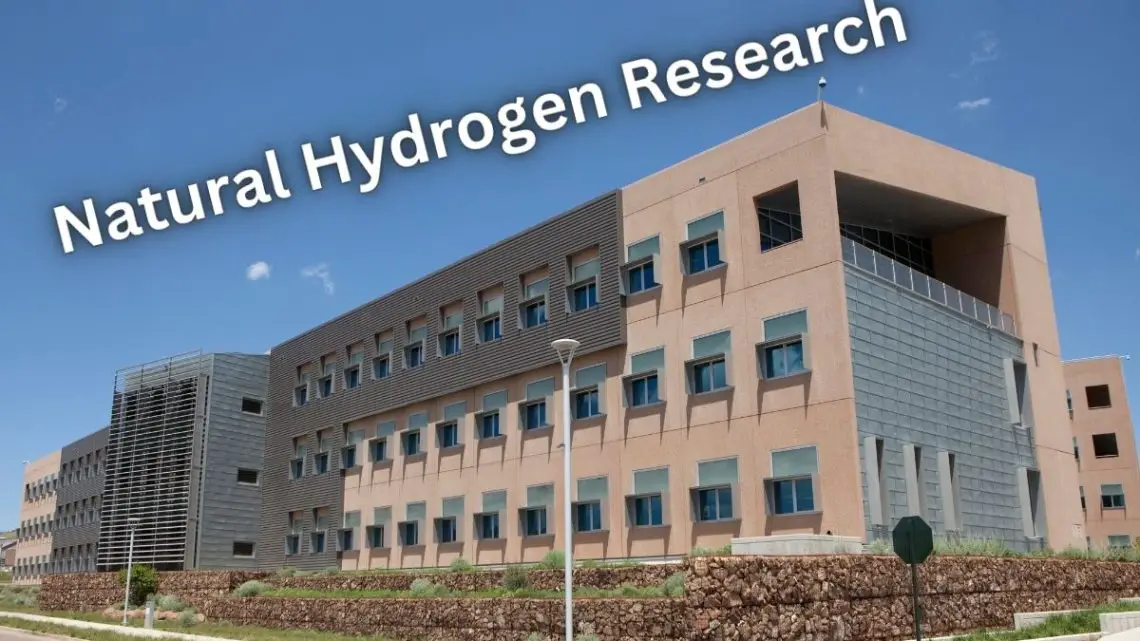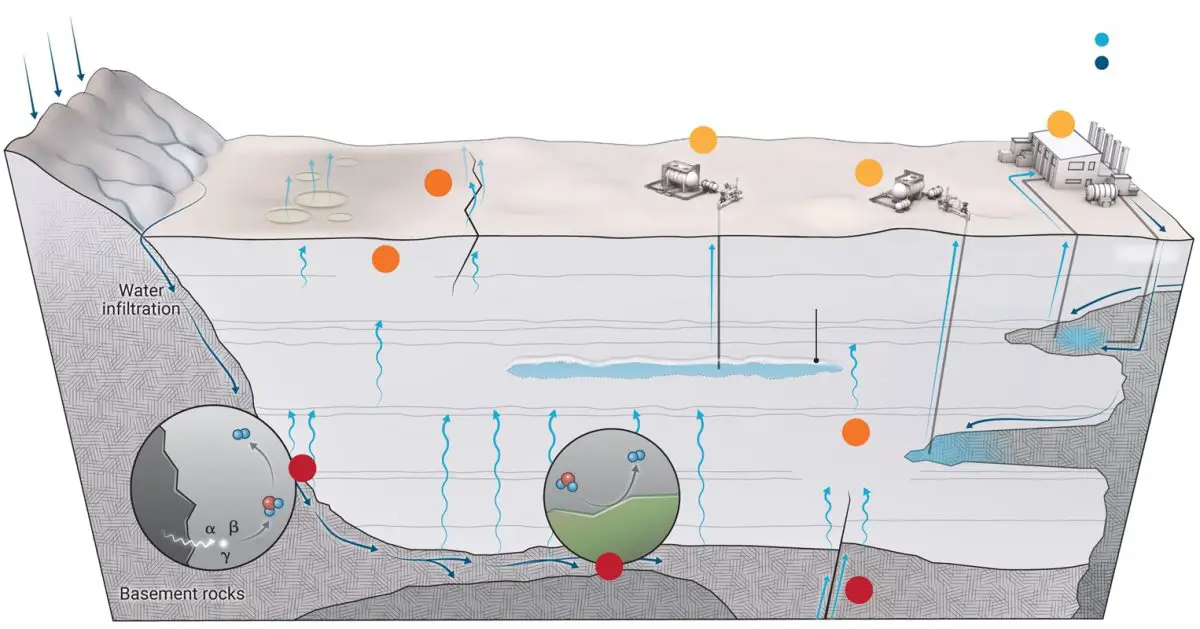
NREL natural hydrogen exploration project wins federal funding
May 6, 2024The US Department of Energy sees potential in NREL’s geological H2 research.
The National Renewable Energy Laboratory (NREL) has been selected by the US Department of Energy (DOE) Advanced Research Projects Agency-Energy (ARPA-E) program to research enhanced production of natural hydrogen.
NREL is one of 16 teams to be selected by the DOE ARPA-E program.
In total, the DOE ARPA-E program has awarded $20 million in funding to16 projects dedicated to exploring natural hydrogen (also known as geological hydrogen and white hydrogen) and reservoir management. The 16 projects span eight states and include teams from businesses, national labs, and universities.
The goal of the projects is to explore early-stage research and development to accelerate the advancement of hydrogen production that is low in emissions and cost. In addition to this goal, while working toward meeting President Biden’s ambitious net zero climate targets, the plan is to create good-paying jobs and new economic opportunities in several communities across the United States.
This funding marks the first time the American government has competitively selected teams to research natural hydrogen technology.
NREL’s natural hydrogen project focuses on H2 production from iron-rich mafic and ultramafic rocks.
The goal of NREL’s project, which is led by Texas Tech University with partners from NREL, Lawrence Berkeley National Laboratory, Rio Tinto, and Lavoisier H2 Geoconsult, is to stimulate the production of hydrogen from iron-rich mafic and ultramafic rocks through mechanical, chemical, and biological processes.

NREL is working with partners to explore the potential of natural hydrogen – Image Source: Science
The new project will implement a microcosm experiment to characterize the rock, water and hydrogen system. NREL researchers will investigate methods to inhibit the microbial uptake of the generated hydrogen and observe how biocatalysts can boost the rate of H2 production. Also, the team will aid in developing tech-to-market efforts once the viability of the natural hydrogen system has been established.
Geological hydrogen production is “important”.
According to NREL research scientist in the Center for Energy Conversion and Storage Systems, Dayo Akindipe, “Natural hydrogen production is important because current methods for producing hydrogen are energy intensive, with hydrogen needing to be derived from other sources, like water or methane.”
 Akindipe, who will lead the NREL team, added that the purpose of the new process is to accelerate natural hydrogen production by applying “multiple stimulation methods” to generate H2 that can then be used for various processes and applications including (among others) industrial, chemical, and transportation. “This research will allow NREL to enable another clean hydrogen pathway,” Akindipe stated.
Akindipe, who will lead the NREL team, added that the purpose of the new process is to accelerate natural hydrogen production by applying “multiple stimulation methods” to generate H2 that can then be used for various processes and applications including (among others) industrial, chemical, and transportation. “This research will allow NREL to enable another clean hydrogen pathway,” Akindipe stated.
The key takeaway.
If it can be effectively harnessed, natural hydrogen could be key in helping the nation unlock affordable, efficient, and large-scale production of clean hydrogen. Funding the exploration and research of NREL’s and the other teams’ projects helps to accelerate the advancement of this tech.
Ready to test your knowledge on the most abundant element in the universe? Take our fun and engaging Hydrogen Quiz now! [forminator_quiz id=”58712″]



 With over 15 years of reporting hydrogen news, we are your premier source for the latest updates and insights in hydrogen and renewable energy.
With over 15 years of reporting hydrogen news, we are your premier source for the latest updates and insights in hydrogen and renewable energy.